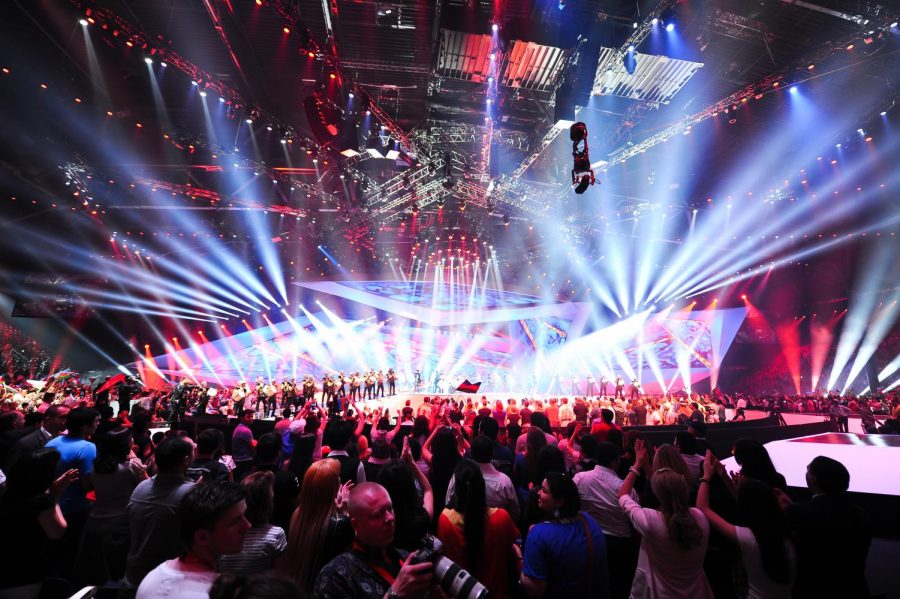The problem with Eurovision
Eurovision is a European music festival and competition that takes places annually and includes most European countries as well as Australia. Each country selects a famous musician from their country to enter a song. Most songs are primarily in English, with some words in the chorus or several verses of the country’s national language incorporated in the song.
The top ten are selected and each perform at the live event in front of judges. Things can become weird with the eccentric performances and bright costumes that leave many Americans clueless. But this year, the winner, Israeli artist Netta, sparked some controversy with global audiences.
Her hair, outfit and makeup seemed to be mocking Japanese culture. Netta claims to be a big fan of Japanese culture, including media and games like Pokémon. But her stage performance and costume strike a particularly sour note with Asian audiences when combined with the Australian controversy that occurred in 2016.
Dami Im, a Korean-Australian artist that competed in the 2016 Eurovision contest and won, was sent hate messages from people claiming she wasn’t really Australian because she was born in South Korea. The treatment of people of color in the contest vs the treatment of the white winner who used Japanese culture as a part of her routine is problematic. Eurovision has trouble fitting the mold of an international music festival that spans across Europe that also isn’t an entirely white-centric music competition.
People of color still have to worry about being “European enough” or “Australian enough” when they have lived in a European country all of their lives, speak the language(s) and go to their public school system. Australia is still dealing with the aftermath of colonization and its treatment of the Aborigines for hundreds of years. White Australians claim Asian immigrants aren’t “Australian enough” even though they are both, in the long run, immigrants.
And Eurovision, like the Olympics, has to balance these issues and make sure everyone gets a fair shot. A seemingly harmless music contest can reveal quite a lot on the underlying tensions and political issues between and within countries. Armenia, which has been competing for years and built up a cult fan base with its consistent landing in the top ten, refused to compete in the 2012 Eurovision competition taking place in Baku Azerbaijan, Armenia’s long time rival. Instead of avoiding a conflict and respecting Armenia’s choice, the European broadcasting agency made Armenia pay 150 percent of the competition fee as a fine for not participating. Eurovision has an important peace-bringing aspect of it in the way of friendly competition between quarreling countries. But its purpose has the opposite effect when it uses controversy to drive up viewership.



